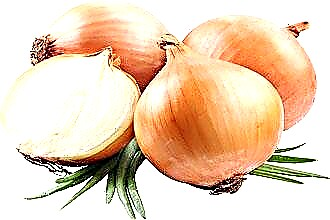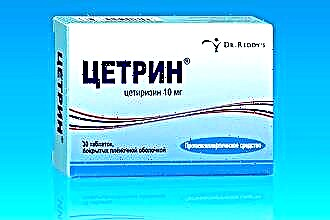Chronic tonsillitis is a very unpleasant and insidious disease, although at first glance it does not seem so serious. Perhaps that is why they often begin to treat it intensively only when the complications associated with it have already developed. To understand how to prevent such a situation, and quickly recognize and cure the disease, you must at least know what chronic tonsillitis is and how it develops.
Development mechanism
 Chronic inflammation of the tonsils does not come on suddenly. For the first time, tonsillitis always manifests itself in an acute form, and the cause of the inflammatory process is pathogenic microorganisms: viruses or bacteria. Most often these are streptococci, staphylococci, pneumococci, but herpes form is also often found.
Chronic inflammation of the tonsils does not come on suddenly. For the first time, tonsillitis always manifests itself in an acute form, and the cause of the inflammatory process is pathogenic microorganisms: viruses or bacteria. Most often these are streptococci, staphylococci, pneumococci, but herpes form is also often found.
Few know that angina is an infectious disease and, moreover, very contagious. Therefore, initially they often try to treat it exclusively with folk remedies, which are simply not able to completely destroy all bacteria. And the herpes virus never disappears from the body at all, since it affects the nerve endings, where it hides during the passive period.
But active treatment with folk remedies can remove such unpleasant symptoms as sore throat, severe inflammation, and even white bloom.
The remaining microbes form foci of sluggish inflammatory processes, which are exacerbated as soon as unfavorable external or internal factors are connected. The same happens with the wrong choice of pharmacy drugs, or when antibiotic treatment is not completed.
A small percentage of cases of development of chronic tonsillitis, bypassing the acute form, occurs in the presence of chronic sinusitis, otitis media, bronchitis, or a large number of teeth affected by caries. In fact, the inflammatory process simply flows smoothly into the tonsils, and it is almost impossible to get rid of it without eliminating the main cause of chronic tonsillitis.
Symptoms and forms
 Unlike acute, which manifests itself in a rather diverse way, chronic tonsillitis has only two forms: simple and toxic-allergic.
Unlike acute, which manifests itself in a rather diverse way, chronic tonsillitis has only two forms: simple and toxic-allergic.
Simple - this is a periodic exacerbation of the inflammatory process, when a white bloom or pus appears on the tonsils, and the patient has obvious symptoms of angina:
- redness of the mucous membrane of the tonsils;
- a noticeable increase and swelling of the glands;
- mild sore throat and discomfort when swallowing;
- the closure of the palatine arches, noticeable upon visual examination;
- the presence of a small amount of pus;
- persistent unpleasant purulent odor from the mouth.
Sometimes chronic inflammation of the tonsils is accompanied by a slight increase in temperature, which can remain within the subfebrile range for several days or even weeks.
The causes of toxic-allergic chronic tonsillitis remained unclear for a long time. Its concomitant symptoms: joint or heart pain, arrhythmia, often occurring tachycardia, are difficult to associate with sore throat.
But when using modern hardware diagnostic tools, doctors identified the main culprit of the disease - this is a special toxin produced by beta-streptococci, with which the bacterium protects itself from the attack of the human immune system. It affects other organs and systems, causing signs of general intoxication of the body and provoking the development of complications.
In fact, in order for tonsillitis to be called chronic, it is enough only to have two main symptoms: sore throat up to several times a year and the constant presence of a small amount of pus on the tonsils.
Moreover, if acute tonsillitis can be one-sided, then chronic tonsillitis is usually bilateral, since sooner or later the inflammation affects both tonsils.
Traditional treatment
If, during an exacerbation, an acute inflammatory process has developed with a strong fever characteristic of angina, sore throat and large accumulations of pus, then the use of antibiotics is definitely necessary for treatment. But only the attending physician should choose drugs in this situation, based on the results of preliminary laboratory tests.
 For rinsing the throat and treating the tonsils, strong antiseptic solutions and sprays must be used: Miramistin, Chlorhexiddin, Furacillin, Boiparox, etc. This washes mucus from the tonsils and kills pathogenic microflora on their surface.
For rinsing the throat and treating the tonsils, strong antiseptic solutions and sprays must be used: Miramistin, Chlorhexiddin, Furacillin, Boiparox, etc. This washes mucus from the tonsils and kills pathogenic microflora on their surface.
If necessary, washing the tonsils with the extraction of pus is carried out by a specialist on an outpatient basis. This allows you to handle the tonsils well and quickly clean their surface without the risk of injury.
At home, squeeze out pus with a spoon or other solid objects under no circumstances. If the infection enters the bloodstream through damaged mucous membranes, multiple abscesses and even sepsis may develop.
Additionally, the course of therapy includes, if necessary, other groups of drugs:
- anti-inflammatory - for rapid relief of the inflammatory process and lowering body temperature: Nurofen, Ibuprofen, etc .;
- antiviral - in case of exacerbation of herpes sore throat "Gerpevir", "Zovirax", etc .;
- irrigation sprays - soothe a sore throat, restore irritated mucous membranes, have an antibacterial effect: Ingalipt, Ingakamp, Hepilor, etc .;
- lozenge tablets - mainly with antibiotics to act directly on the inflammation focus: Septefril, Septolette, Grammicidin, etc .;
- antihistamines - to relieve swelling of the mucous membranes and as prevention of allergic reactions: "Suprastin", "Diazolin", "Tavegil".
The attending physician should select a course of drug treatment strictly individually. If you are going to use alternative methods of treatment in parallel, be sure to tell him about it.
Certain plants and milk reduce the effectiveness of drugs. And grapefruit juice, on the contrary, enhances the effect of antibiotics and can lead to the appearance of side effects typical of drug overdose.
Physiotherapeutic procedures are excellent for exacerbation or for its prevention: UHF, electrophoresis, quartz tube, laser heating, etc. Preventive physiotherapy course in combination with taking multivitamin and immunomodulatory drugs, carried out in spring and autumn, allows you to prevent exacerbation of the disease in the off-season, when immunity decreases, and the risk of re-infection increases.
The course of treatment must be completed. The mistake of many is that as soon as the general condition improves, they stop taking medications. Naturally, the inflammation remains untreated again, and chronic tonsillitis does not go away.
Folk methods
Traditional methods of treatment are not able to completely rid a person of any form of angina. However, they are quite capable of restraining the exacerbation and significantly reducing the manifestations of the symptoms of the disease.
The most effective natural remedies for tonsillitis are:
- Decoctions and tinctures of plants that are used for rinsing and / or steam inhalation. Many plants have antibacterial, antiseptic, anti-inflammatory properties. For the treatment of angina well suited: calendula, chamomile, sage, St. John's wort, thyme, elecampane, mint, eucalyptus, coltsfoot, thyme, rosemary, calamus, pine buds.
- Herbal teas.Not all plants that are good for gargling can be taken orally, much less in large quantities. Drinking herbal teas in order to significantly accelerate recovery should be at least 1-1.5 liters per day. For these purposes, it is better to take mint, lemon balm, rose hips, currant leaves, raspberry berries and sprigs, lime blossom, elderberry flowers and berries, wild berries.

- Saline solution - well flushes mucus and pus from the throat, creates an extremely unfavorable environment for the development of pathogenic bacteria. Better to use a sea salt solution - a full teaspoon in a glass of warm water. Or add 5-7 drops of iodine to a solution of ordinary cooking (not extras!). Gargle at least 5-6 times a day, for preventive purposes 1-2 times a day.
- Freshly squeezed juices. Cabbage, carrot, beetroot, potato can be used as an excellent gargle or throat irrigation in its pure form. Onion, garlic and lemon must be diluted in half with water. Black radish juice mixed in half with honey perfectly heals mucous membranes and quickly relieves irritation.
- Beekeeping products. First of all, it is honey and propolis. They have an excellent antiseptic effect, strengthen the immune system, quickly relieve irritation and swelling. Alcohol tincture of propolis must be added to the rinse water (20-30 drops per 100 ml of water). Honey can be kept under the tongue, like a lozenge, added to warm (not hot!) Herbal tea; take a teaspoon as a syrup, mixed with lemon, onion, garlic juice or pureed aloe pulp.
- Natural oils. Inflamed mucous membranes heal perfectly, have anti-inflammatory and antiseptic effects. At the same time they serve as a source of vitamins and minerals and strengthen the immune system. Oils can be taken in a teaspoon 2-3 times a day or lubricated with them tonsils. The choice should be stopped on sea buckthorn, olive, St. John's wort, apricot, rosehip or cocoa butter.
All these funds are safe and effective, but they only help with a mild exacerbation of chronic tonsillitis or as a preventive measure. With pronounced signs of angina, it is necessary to combine them with traditional drugs.
Surgical removal
If none of the treatment methods give a lasting desired result, or the growth of the tonsils is so strong that they begin to interfere with normal breathing and swallowing, they have to resort to their surgical removal. If earlier such operations were done quite often, now they are considered an extreme measure.
The operation itself is simple, but with the use of modern hardware technologies: ultrasound, laser, cryo-installation, it is practically bloodless and absolutely safe.
But having lost the tonsils, which consist mainly of lymphoid tissue and are a natural barrier to infection that tends to get into the respiratory tract, a person often begins to suffer from tracheitis, bronchitis and even pneumonia.
There are also a number of contraindications for surgical intervention:
- heart or kidney failure;
- arterial hypertension 2-3 degrees;
- any blood clotting disorders;
- diabetes mellitus 2-3 degrees;
- pregnancy and breastfeeding;
- any form of tuberculosis;
- exacerbation of chronic diseases;
- severely reduced immunity;
- active inflammatory processes;
- the presence of carious teeth in the oral cavity.
The active recovery period after the operation lasts up to 48 hours, during which one should not eat solid food and it is necessary to protect the throat from infections and overexertion. And after 2-3 weeks, you can completely return to an active lifestyle without any restrictions.
Dangerous complications
 It is imperative to treat chronic tonsillitis. Today it is called by doctors as one of the reasons for the manifestation and / or exacerbation of such serious diseases as psoriasis and lupus, which for a long time may not manifest themselves in any way while in the body.
It is imperative to treat chronic tonsillitis. Today it is called by doctors as one of the reasons for the manifestation and / or exacerbation of such serious diseases as psoriasis and lupus, which for a long time may not manifest themselves in any way while in the body.
If untreated, chronic tonsillitis gradually affects other organs and systems, provoking the development of severe complications:
- chronic swelling of the mucous membranes of the nose, leading to their atrophy and making breathing difficult;
- chronic sinusitis, as the infection spreads to the sinuses;
- cardiovascular diseases: myocarditis, rheumatic heart disease, ischemic disease;
- visual impairment due to damage to the mucous membrane of the eyes or optic nerves;
- malfunctions of the endocrine system.
As a result of chronic intoxication, immunity is greatly reduced, and in women there is a violation of reproductive function. Often, serious kidney disease develops, as they constantly have to cope with a large amount of toxins.
If the treatment turns out to be ineffective, and the doctor insists on the operation, you should not refuse it.
When surgical intervention is impossible due to the presence of contraindications, it is necessary to restrain the exacerbation and development of the disease with the help of preventive measures.
Prevention measures
Often, chronic tonsillitis in adults occurs under the influence of negative external factors, as well as due to inattention to their own health. Acute sore throat should always be treated to the end and in no case should the disease be tolerated “on the legs”.
Acute tonsillitis requires bed rest for at least the first few days in order to give the body the strength to fight the disease.
It is necessary to take additional preventive measures to prevent the development of chronic tonsillitis:
 Strictly monitor the cleanliness of the oral cavity, the condition of the teeth and gums, and regularly visit the dentist.
Strictly monitor the cleanliness of the oral cavity, the condition of the teeth and gums, and regularly visit the dentist.- After the street or visiting public places, be sure to wash your hands with soap, you can wipe with antiseptic wipes.
- Regularly ventilate living and working areas, maintain optimal temperature and humidity in them.
- Wet cleaning in the living room should be carried out at least 2 times a week, and it should be examined for possible allergens 2 times a month.
- At any time of the year, the body must be provided with a sufficient amount of vitamins, minerals and trace elements.
- It is imperative to do everything possible to strengthen immunity: hardening procedures, breathing exercises, physical exercises.
- Give up bad habits, especially smoking, which leads to atrophy of the mucous membranes and provokes respiratory diseases.
The right diet is just as important. At a minimum, this is an exclusion from the diet of foods that irritate the mucous throats (including tonsils): too spicy, salty, spicy, hot or cold food, carbonated water, semi-finished products with a large amount of chemical dyes and additives.
It is necessary to eat in moderation and monitor the timely emptying of the intestines - the slagged body is not able to normally absorb food. It remains in the intestine, where the processes of fermentation and general intoxication of the body begin, as a result of which immunity is greatly reduced.
But the main thing is not to self-medicate in any way. Only an experienced doctor is often able to distinguish chronic tonsillitis from ARVI. And with the wrong treatment, precious time will be lost and the disease will begin to progress.
Therefore, if you have a sore throat more than twice a year, be sure to consult your doctor and undergo a comprehensive examination.


 Strictly monitor the cleanliness of the oral cavity, the condition of the teeth and gums, and regularly visit the dentist.
Strictly monitor the cleanliness of the oral cavity, the condition of the teeth and gums, and regularly visit the dentist.

